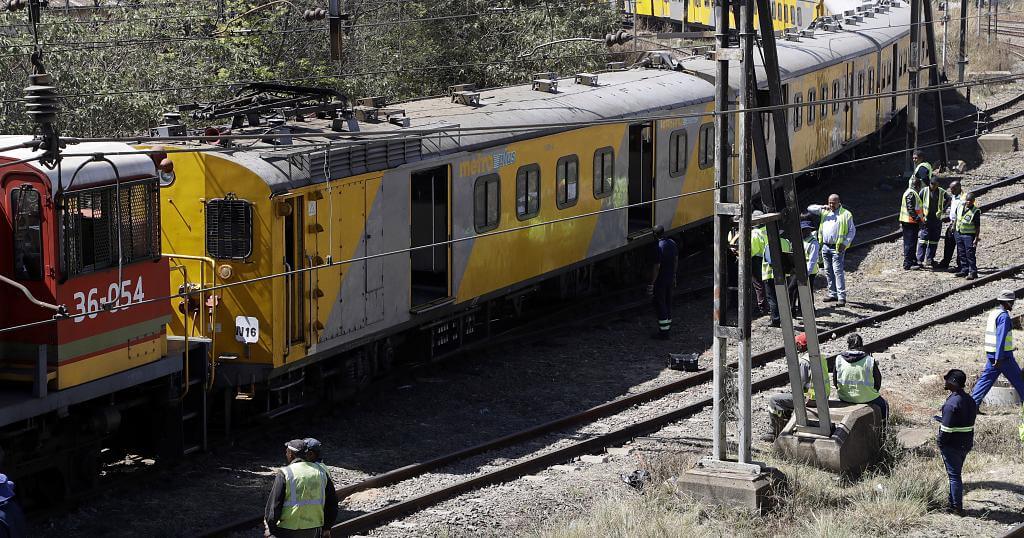
South Africa’s Gibela to Produce High-Tech Trains per Year
South Africa’s Gibela is building the country’s next fleet of high-tech trains. Railway stations across the country have been extensively looted during the nationwide COVID-19 lockdown, leaving trains at a standstill.
South Africa’s railway infrastructure has been ravaged during coronavirus lockdown, with thieves plundering anything from cables and handrails to bricks and doors.
In the strictest months of confinement last year, looters went to work on unguarded stations and railway infrastructure, making off with almost anything that could be ripped off or cut down and carted off.
Kliptown, a train station in the famous Johannesburg township of Soweto, lies in ruins, stripped bare of its windows and doors and even its roof.
Signalling and electric cables have been yanked out. Staircase railings have been sawn off. Even the perimeter walls have not been spared, with bricks bashed out and hauled away.
“It’s like an atomic bomb was thrown here… It’s like a tsunami,” lamented a community leader, George Mohlala, 37, pointing to the ruined station.
When President Cyril Ramaphosa placed the country under a strict lockdown, railway stations were left unguarded.
More than 80% of the country’s train stations have been vandalized, the state-owned rail operator Passenger Rail Agency of South Africa (PRASA) said.
What’s left of the ticketing office in the Kliptown station are shards of glass — the only evidence of turnstiles that once functioned here.
– ‘Like a war zone’ –
“It’s like a war zone,” said a despondent Mohlala, navigating around holes dug on the platform to extract underground cables.
“The only thing that is left here is heavy (items) that people cannot lift,” he said, pointing to rusty rail tracks, flanked by weeds and grass.
Some locals are even illegally tapping into electricity from the disused stations to their homes.
Ironically, the vandalism occurred as the government embarked on an ambitious multi-billion-dollar plan to modernize its urban commuter rail transport network.
Around 50 kilometres (30 miles) east of Johannesburg in the small town of Nigel is a state-of-the-art factory that is manufacturing “people’s trains,” as they are dubbed.
Named Gibela (“Get on board” in the Zulu language), it is run by a consortium of French giant Alstom and South Africa’s Ubumbano Rail and has a contract to build a fleet of 3,600 coaches or 600 complete trains — including wagons and engines — by the turn of the decade.
Since 2018, the factory has produced more than 50 complete trains, of which 16 have been dispatched to Cape Town and Durban.
The rest are safely locked away at a storage depot in Pretoria awaiting deployment.
The 51-billion-rand ($3-billion, 2.8-billion-euro) contract is one of the largest in post-apartheid South Africa.
After overcoming teething troubles and falling behind schedule, Gibela is ramping up production.
“We will have to deliver 62 trains per year until the end of the project,” Gibela factory manager Loic Le Gorrec told AFP.
Alstom’s Southern Africa regional general manager Bernard Peille, said: “Having this target of producing two cars per day in two years… (Gibela) should be basically one of the fastest production factories in the world, not only in Africa.”

